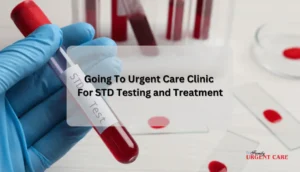As a woman, your risk of having at least one urinary tract infection, also called a UTI, during your lifetime is more than 50%. Your anatomy makes you more likely to get a UTI than a man. Your urethra, the tube from which urine flows, is shorter than that of a man, so bacteria on or near the urethra can more easily reach the bladder.
Conditions that increase the chances of a UTI
Several conditions can increase the risk of developing a UTI. Being aware of these helps you take proper steps to help prevent the infection.
You’re especially prone to developing a UTI after sexual intercourse if you don’t take precautions. Your vagina is just behind your urethra. Bacteria from the vagina can move into the urethra and up to the bladder. Diaphragms and spermicides may increase the risk of a UTI.
Once you’ve had a UTI, you’re more likely to have a second occurrence. If you’ve had several children, your risk also increases.
Women in menopause are at risk for UTIs. In menopause, your estrogen level drops dramatically. Researchers think that estrogen may be a protective factor in preventing E. coli bacteria from overpopulating the urinary tract.
If your bladder doesn’t empty completely, or if you have bladder or bowel incontinence, UTIs are more common because of higher levels of bacteria where you void. Patients with Alzheimer’s disease, Parkinson’s, diabetes, and other conditions requiring pads or briefs are more at risk.
Why you should be treated promptly for a UTI
A UTI is usually painful; you’re seeking relief. Pain is a signal from the affected body system that help is needed.
Aside from the pain, if left untreated, the infection can spread from your lower urinary tract (your urethra and bladder) to your kidneys. Kidney infections can cause permanent kidney damage and serious complications to your health. If you have a UTI and you experience back pain, chills, fever, nausea, or vomiting, you need immediate medical attention.
If you’re pregnant and suspect you have a UTI, contact Family Urgent Care right away. A UTI in pregnancy increases the risk for a premature or low birth weight baby.
Don’t avoid UTI symptoms
Learn the symptoms of a UTI so you don’t delay treatment. Intense pain or burning when you urinate is a common symptom, along with urgency and frequency of urination. You may rush back to the bathroom a few minutes after you’ve voided thinking you need to go again, but you can’t.
In addition to a burning sensation, your side, abdomen, or back may be slightly sore, or your abdomen may feel full. Your urine may smell bad, be cloudy, or contain blood. Be sure to tell Dr. Shahida about all of your symptoms, because blood in your urine can result from more than one condition.
Preventive strategies
Several common-sense strategies can help prevent UTIs. Drink water to help you urinate and clear your bladder as soon as you can after sexual intercourse. Staying hydrated helps clear bacteria out of your urethra, so drink plenty of water every day. Wipe yourself from front to back to clear bacteria from your urethra. Cranberry juice has long been a home remedy; it has antioxidants and may help prevent E. coli bacteria from congregating in your urethra.
For all of your health care needs, call the office of Family Urgent Care, or book your appointment online today.
























